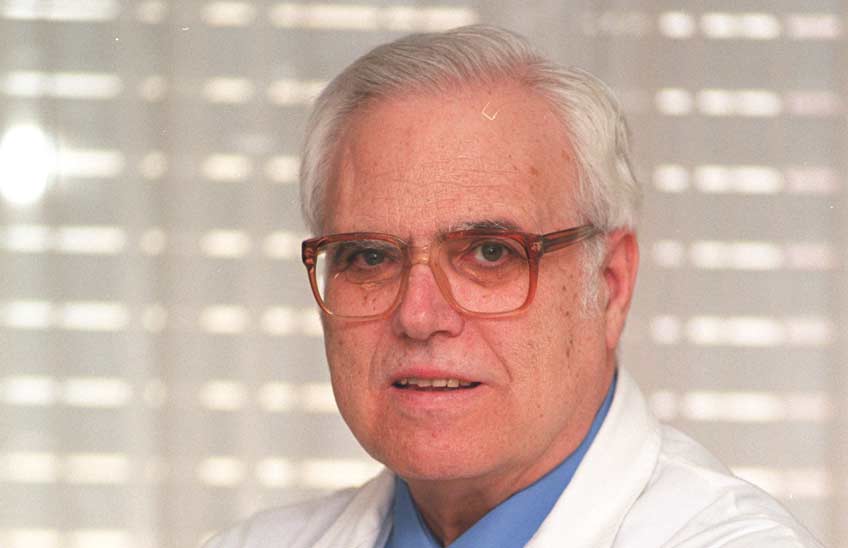Death of Professor Emeritus José Bello, Full Professor of Bromatology and one of the pioneers of School of Pharmacy and Nutrition.
Professor of the Schools of Pharmacy of the universities of Seville, Granada, for more than 30 years he worked as researcher in the Campus of Pamplona.

25 | 10 | 2022
The Full Professor José Bello, former director of the department of Bromatology, Food Technology and Toxicology, and Professor Emeritus of the School of Pharmacy and Nutrition, has passed away in Gelves (Seville) at the age of 91. A native of the Andalusian capital, he joined the University of Navarra in 1969, after graduating in Chemical Sciences from the University of Seville and in Pharmacy between Santiago and Pamplona, where he spent most of his career professor and research until his retirement in 2001.
"The research work carried out by Professor Bello in his early years was developed with a B precariousness of means. But it was made possible and encouraged by the spirit and style of our University, which, even then, those of us who were beginning to train there could perceive", recalls Edurne Cenarruzabeitia, former dean of the School of Pharmacy and Nutrition and a doctoral student of Dr. Bello. His vision of the future allowed him to combine basic and applied research , which meant that his expert opinion was sought after in prestigious forums. "However, he had a constant concern, especially in his last years: in his attempt to pave the way for those of us who came after him, he developed a fruitful and frenetic activity as a scientific writer-professor", details Professor Cenarruzabeitia.
After some initial years in Pamplona, José Bello obtained a place of partner scientist of the CSIC in 1972 and later, the Chair of Bromatology and Toxicology of the School of Pharmacy of the University of Seville, which determined that he was absent from the University of Navarra for some years, from October 1978 to October 1981, to be professor between Seville and Granada.
A teacher with a passion for people
In the 81-82 academic year, he returned to Navarra. "We 5th year Pharmacy students knew there was something new: a new professor of Bromatology, from Seville and Full Professor from the prestigious universities of Seville and Granada," recalls Icíar Astiasarán. "His Andalusian accent sometimes made it difficult to take notes, but the contents and the pace of the subject made us immediately get hooked on this science, until then unknown, and yet of such great interest to the health professionals that, as pharmacists, we were going to become".
At researcher, it is worth mentioning his contribution to the Sciences of Chemical Analysis, Bromatology and Toxicology through more than 280 papers published in prestigious scientific journals and presented at national and international congresses. In addition, he collaborated as author and publisher in 16 books, and gave more than 35 lectures in scientific forums, directed specialized courses and participated as member or president of scientific committees of several national and international events. He directed 31 doctoral thesis .
"Anyone who has known Pepe Bello has been impressed by his cultural background. The 11 a.m. coffee, established by him and which still lasts today, was always an opportune moment for him to tell us countless historical anecdotes and to enlighten us about painters, musicians, politicians and characters of various kinds, both past and present," says Professor Astiasarán. "It was also the ideal occasion for numerous celebrations, as well as to enthuse and excite the doctoral students who were beginning to take their first steps on the university path".
In 2001, on the occasion of an academic act of homage for his retirement, Professor José Bello took the opportunity to define from his experience the mission statement of the university training to which he dedicated most of his life: "Throughout my years at the University, I have learned that the ideal of anyone who is dedicated to the teaching should be to train people and not only heads. While transmitting scientific knowledge, one must also communicate, above all by example, a training that leads to the conviction that the model to follow in all professional, social, family, etc. activities must always be the attitude of service to others. Undoubtedly, the new generations must be provided with a solid human training and steeped in a Christian sense of life, so that in their life internship they can be useful to society. And this is what I have tried to do during all these years".
